How to Find and Value a Business for Sale in Durham, NC: A Comprehensive Guide
Understanding the Durham, NC Business Market
Key Industries in Durham
Durham is home to a variety of key industries that drive its economy. Some of the most important include:
- Healthcare: With major hospitals and research facilities, healthcare is a leading sector.
- Technology: The area has a growing tech scene, attracting startups and established companies.
- Education: Education plays a significant role in the local economy, which is home to several universities.
Economic Trends and Projections
The economic landscape in Durham is constantly evolving. Here are some trends to watch:
- Growth in Tech Jobs: More tech companies are moving to the area, creating new job opportunities.
- Increase in Population: As more people move to Durham, demand for goods and services is rising.
- Investment in Infrastructure: Ongoing road improvements and public transport make the area more accessible.
Demographics and Consumer Behavior
Understanding the people of Durham is crucial for businesses. Key points include:
- Diverse Population: Durham has a mix of cultures and backgrounds, influencing buying habits.
- Young Professionals: A significant number of young adults are moving to the area, impacting trends in housing and services.
- Health-Conscious Consumers: Many residents prioritize health and wellness, affecting what businesses thrive.
The Durham business market is vibrant and full of opportunities. By understanding its key industries and trends, you can make informed decisions when buying a business.
Identifying Profitable Business Opportunities
Researching Market Demand
To find a good business to buy, you need to know what people want. Here are some ways to research market demand:
- Look at local trends: Check what products or services are popular in Durham.
- Talk to potential customers: Ask people what they need or want.
- Use online tools: Websites and social media can show you what’s trending.
Analyzing Competition
Understanding your competition is key to finding a profitable business. Consider these steps:
- Identify your competitors: Find out who is selling similar products or services.
- Study their strengths and weaknesses: What do they do well? Where do they fall short?
- Look for gaps in the market: Is there something missing that you could provide?
Spotting Emerging Trends
Keeping an eye on new trends can help you find great business opportunities. Here’s how:
- Follow industry news: Stay updated on changes in your field.
- Attend local events: Networking can help you discover new ideas.
- Join online forums: Engage with others to learn about upcoming trends.
Finding the right business opportunity takes time and effort, but being informed can lead to great success.
Working with Business Brokers in Durham
Benefits of Using a Business Broker
- Expert Guidance: Business brokers in Durham, NC know the market well and can help you find the right business for sale.
- Time-Saving: They handle a lot of the legwork, allowing you to focus on your goals.
- Negotiation Skills: Brokers are skilled negotiators who can help you get a better deal.
How to Choose the Right Broker
- Experience Matters: Look for brokers with experience in the Durham area, like First Choice Business Brokers of the Triangle.
- Check Reviews: Read reviews or ask for references to see what others say about them.
- Meet in Person: A face-to-face meeting can help gauge whether you feel comfortable working with them.
Questions to Ask Potential Brokers
- What is your experience in selling businesses similar to mine?
- How do you market businesses for sale in Durham, NC?
- What are your fees, and how are they structured?
Working with a knowledgeable broker can make buying a business smoother and more successful. They can help you navigate the complexities of the market and find the best opportunities.
Conducting a Thorough Business Valuation
Understanding Valuation Methods
When valuing a business, knowing the different methods available is important. Here are some common approaches:
- Asset-based valuation: This looks at the total value of the business's assets.
- Income-based valuation: This method focuses on the business's ability to generate income.
- Market-based valuation compares the business to similar businesses that have recently sold.
Gathering Financial Information
To get an accurate valuation, you need to collect key financial data. Make sure to gather:
- Recent tax returns
- Profit and loss statements
- Balance sheets
- Cash flow statements
Assessing Tangible and Intangible Assets
Both tangible and intangible assets play a role in a business's value. Tangible assets include physical items like equipment and inventory, while intangible assets include brand reputation and customer relationships. Here’s how to assess them:
- List all physical assets and their current values.
- Evaluate the brand’s strength and market position.
- Consider customer loyalty and any unique business processes.
Understanding how to value a business is crucial for making informed decisions. A thorough valuation helps avoid overpaying and ensures you know what you’re getting into.
Financing Your Business Purchase
When buying a business, understanding your financing options is crucial. Finding the right funding can make or break your purchase. Here are some common ways to finance your business:
Exploring Financing Options
- Personal Savings: Using your money can be a straightforward way to fund your purchase.
- Bank Loans: Traditional banks offer loans, but you’ll need a solid business plan and good credit.
- Investors: Bringing in investors can provide the capital you need, but be ready to share ownership.
Preparing a Business Plan
Creating a detailed business plan is essential. It should include:
- Executive Summary: A brief overview of your business idea.
- Market Analysis: Information about your target market and competition.
- Financial Projections: Estimates of future income and expenses.
Securing a Loan or Investment
Once you have your plan, you can start looking for funding. Here are steps to follow:
- Research Lenders: Look for banks or credit unions specializing in business loans.
- Prepare Your Documents: Gather financial statements, tax returns, and business plans.
- Practice Your Pitch: Be ready to explain why your business is a good investment.
Financing a business purchase can be challenging, but with the right preparation and resources, you can find the support you need to succeed.
Legal Considerations When Buying a Business
Reviewing Contracts and Agreements
When buying a business, carefully examine all contracts and agreements. This helps ensure you understand your rights and responsibilities. Here are some key points to consider:
- Look for any existing contracts with suppliers or customers.
- Check for lease agreements on property or equipment.
- Understand any employee contracts or agreements.
Understanding Regulatory Requirements
Every business must follow specific laws and regulations. Make sure you:
- Know the local, state, and federal laws that apply to the business.
- Check if the business has all necessary licenses and permits.
- Understand any industry-specific regulations that may affect operations.
Conducting Due Diligence
Due diligence is the process of investigating the business before you buy it. This step is important to avoid surprises later. Here are some things to do:
- Review financial records, including tax returns and profit statements.
- Investigate any legal issues or pending lawsuits.
- Assess the business’s reputation in the community.
Understanding these legal aspects can save you from future problems and help you make a smart purchase.
Negotiating the Purchase Price
Strategies for Effective Negotiation
- Know Your Limits: Before starting, decide your highest price.
- Do Your Homework: Research the business’s value and market trends.
- Build Rapport: Establish a good relationship with the seller to make negotiations smoother.
Common Pitfalls to Avoid
- Rushing the Process: Take your time to understand all aspects of the deal.
- Ignoring Details: Pay attention to every part of the agreement, no matter how small.
- Being Too Emotional: Keep your feelings in check to make clear-headed decisions.
Finalizing the Deal
- Get Everything in Writing: Ensure all agreements are documented.
- Review Terms Carefully: Go over the final terms with a legal expert.
- Stay Flexible: Be open to adjustments to reach a fair agreement.
Negotiating the purchase price is a crucial step in buying a business. Being prepared and informed can lead to a better deal.
Transitioning to New Ownership
Creating a Transition Plan
When taking over a business, having a clear plan is essential. A good transition plan should include:
- Goals for the first 90 days: What do you want to achieve?
- Key tasks and responsibilities: Who will do what?
- Timeline for changes: When will things happen?
Communicating with Employees and Customers
It's important to keep everyone in the loop. Here are some tips:
- Be open and honest: Share your vision for the business.
- Listen to concerns: Make sure to hear what employees and customers have to say.
- Provide support: Offer help during the transition period.
Maintaining Business Continuity
To keep the business running smoothly, consider these points:
- Keep existing processes: Don’t change everything at once.
- Focus on customer service: Ensure customers still get great service.
- Monitor performance: Check how things are going regularly.
Transitioning to new ownership can be challenging, but with a solid plan and good communication, you can succeed.
Resources and Support for New Business Owners in Durham
Local Business Organizations
- Durham Chamber of Commerce: A great place to connect with other business owners and find resources.
- Small Business Center: Offers free workshops and one-on-one counseling for new entrepreneurs.
- Durham Economic Development: Provides information on local incentives and support programs.
Government Programs and Incentives
- Grants and Loans: Look for local grants that can help fund your business.
- Tax Incentives: Some programs offer tax breaks for new businesses in certain areas.
- Training Programs: Government-funded training can help you and your employees gain new skills.
Networking Opportunities
- Business Meetups: Join local meetups to meet other business owners and share ideas.
- Workshops and Seminars: Attend events to learn more about running a business.
- Online Forums: Participate in online groups to ask questions and get advice from experienced entrepreneurs.
Starting a business can be tough, but there are many resources in Durham to help you succeed. Take advantage of local support to make your journey easier!
Case Studies of Successful Business Purchases in Durham
Lessons Learned from Local Entrepreneurs
- Adaptability is key. Many successful entrepreneurs adjusted their business models to meet local needs.
- Networking played a crucial role in finding opportunities and resources.
- Understanding the community helped in tailoring services and products effectively.
Examples of Profitable Business Models
- Food and Beverage: Local cafes focusing on organic and locally sourced ingredients have thrived.
- Tech Startups: Companies that provide innovative tech solutions for local businesses are seeing growth.
- Health and Wellness: Gyms and wellness centers that offer personalized services are in high demand.
Tips for Replicating Success
- Research the local market thoroughly before making a purchase.
- Build strong relationships with other business owners and community members.
- Stay flexible and be ready to change your approach based on feedback and market trends.
Understanding the local market and being open to change can lead to great success in Durham's business landscape.
Future Outlook for Businesses in Durham, NC
Projected Economic Growth
- Durham's economy is expected to keep growing steadily.
- New businesses are likely to emerge, especially in tech and healthcare.
- Job opportunities will increase, attracting more residents.
Potential Challenges and Opportunities
- Competition may rise as more businesses enter the market.
- Local regulations could change, impacting how businesses operate.
- However, there are chances for innovation and collaboration among local firms.
Long-Term Investment Strategies
- Focus on industries that are expanding, like technology and healthcare.
- Build strong relationships with local organizations for support.
- Stay informed about market trends to make smart investment choices.
The future for businesses in Durham looks bright, but staying adaptable and informed is key to success.
Conclusion
Finding and valuing a
business for sale in Durham, NC, can seem tough, but it doesn’t have to be. With the right help from First Choice Business Brokers of the Triangle experts, you can make this process much easier. They are here to guide you through every step, from spotting good business opportunities to figuring out how much a business is worth. This guide has given you the tools and knowledge to make smart choices. Remember, taking your time and getting the right advice can lead to successful business ownership.






